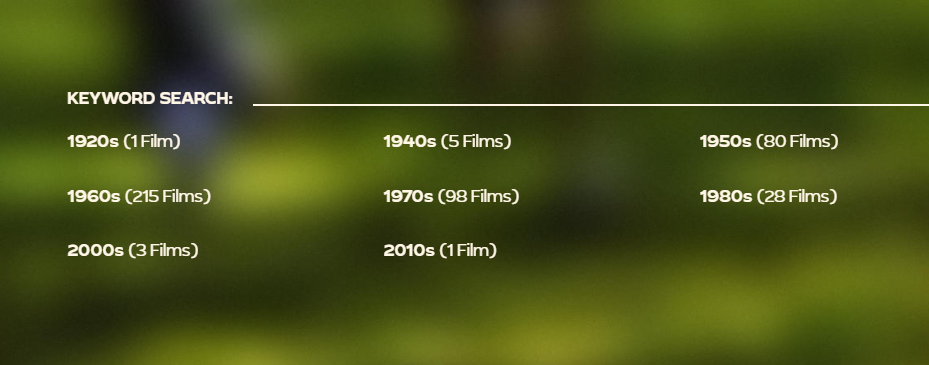-
Posts
4,192 -
Joined
-
Last visited
-
Days Won
121
richardmurray's Achievements
Single Status Update
See all updates by richardmurray
-
MOVIES THAT MOVE WE with Nike Ma and Nicole Decandas , discuss Alien vs Predaotr
My thoughts with time indexes as I listened
circa 3:47
Its funny, Black people in terms of film have an interesting relationship with the room in the house of fantasy called science fiction.
When I think of Body and Soul, Sankofa, Daughters of the Dust, black people are more interested in dream fiction, which is in fantasy, more than science fiction.circa 4:06
As I ponder Nichelle Nichols I realize in cheap retrospect what many Black people see, what MArtin Luther King jr. saw, and what I don't like.
Nichelle Nichols in star trek, the original series, is interesting cause she is so lauded by Black people, including me, yet the production is in many ways something between anti-black or not pro black.
To be blunt, Black people in the USA love Nichelle Nichols as Uhura because as a thespian or the character itself, she represents what they want. The Black Individual in the USA doesn't need or exclusively want a star ship designed by black people, populaced by black officers, in Black interstellar law enforcement agency or governmental union.
The Black people in the USA are content with Black people living happy, or respected aside non Blacks in a ship not designed by blacks, in a ship mostly populated by non blacks, in a non black interstellar organization or law enforcment organization.
It is not that Black people in the USA do not want the black designed ship, with the black crew , with the black interstellar organization, but they are content to live as individuals without it, hoping or knowing it will happen one day.
I don't like that, but that is the potency of Nichelle Nichols as Uhuracirca 4:32
The terms science fiction or fantasy have commonly accepted definitions but are in no way bounded to the common definitions.
I define for this section fantasy as any film that involves the unreal, so aliens/monsters/psycopaths any unreal character, including faux biographcal characters is fantasy.
Musicals I define as films where exhibitions of songs are inacted by thespians in the film on more than one occasion, thus seven brides for seven brothers <which I never saw, but I recall the title>, Purple Rain, west side story are musicals. The fifth element, footloose, the color purple, ray are not musicals based on my definition.
I will not speak for Nike, but when I say major production in USA cinema, I refer to volume of money spent on the film. Blackwood, Black financed cinema in the usa, is historically in comparison to Hollywood,white financed cinema in the USA, lower budget. But I do not concur with comparing Black cinema to white cinema financially in the usa. The distinction of Black cinema in the usa is it is historically with the leanest finances, thus expensive fantastic productions are not possible. Thus why Dream Fiction is so popular in Black Cinema: Body and Soul, Sankofa, Daughters of the Dust, Ceddo , Emitai
In the USA no high budget Hollywood film involving what is commonly called science fiction had a black female lead before sanaa lathan. Dionna Ross was in a high budget film , but the WIZ is commonly considered a musical or fantasy film, not science fiction, in the USA.
Oddly enough, the journey of Dorothy is a dream journey which is historically interesting with the prevalence of dream fiction in Black cinema.circa 5:38
Nicole asked a historical question. She asked, I paraphrase her, Black people are usually cast in Hollywood, note I define hollywood as white financed cinema in the USA, in dramatic or comedy roles but to what extent are Black thespians comfortable or the Black audience comfortable with Science fiction?
I recall Eddie Murphy saying he turned down who framed roger rabbit based on the screenplay he received or pitch he got, and he didn't buy it. The white actor, bob hoskins, who played the role Murphy let go ,oddly enough to my themes, was in a movie in 1986 called Mona Lisa, which is a dream fiction film.
So Eddie Murphy's admitted career choices show Black thespians have doubts. I add, Denzel Washington turned down Seven, which Morgan Freeman did. Sequentially, "the nutty professor" or "doctor dolittle" from Murphy or "the little things" from Washington.
In defense to Murphy or Denzel, I read screenplays. And if you ever read the original screenplay of 1986 legend, by Hjortsberg , you will realize how what thespians are originally pitched can be far away from what is finally produced.
Now, why does that matter? To Nicole's point, Black Thespians based on the two examples I gave maintain the Black labor mentality in the USA. The Black labor mentality is based on the fact that Black people rarely are the owners, thus our employment is never secure and must be merited. Sequentially, as a thespian, mistakes are costly in a career. Sequentially, Black Thespians don't take the risks that early scripts present themselves to be.
As for the Black audience, the Black audience was always ready, but only recently had the money.circa 6:51
Nike spoke on Black Panther and how a question existed in media. The question was: if people, I will define people as ticket buyers to films, was ready for an all black cast superhero film, I define ready as willing to buy tickets?
The reality is , consumers are always artistically ready, but not always financially able. I restate, Black people always wanted to see Black people in everything. But Black people didn't have the money, nor did the non black ticket buyers show the willingness to buy a ticket for an all black high budget film in the past.
But past the year 2020 when Blacks in: Africa,Europe, the Americas, Asia are all financially potent, let alone capable, they have the money to buy the tickets.
And, non Black ticket buyers past the year 2020 are willing to buy an all Black cast.Circa 7:52
Nike states Hollywood, I defined it earlier, does not feel non blacks are willing to pay a ticket to see Black leads today. I concur. But I will say in the fantasy film realm, especially, that some Black creators haven't helped.
From Poitier in the film "The Longships" <oh the Black Moor:) forgive me> to Sayles, a white director, "Brother from another planet" starring Jellyroll Morton to Wesley SNipes as Blade, Black thespians have taken fantasy roles seriously.
But from "Cleopatra Jones" to "The Adventures of Pluto Nash" to "Fat Albert" to "MEtero Man" Black creators or thespians have played fantasy roles in a comedic way that hurts the role.
To be blunt, fantasy can easily become comedy, as it is easy to laugh at the unreal. To many examples of Black thespians making a fantasy role comedic exists.
And that is why Sanaa LAthan's heroine in Alien vs PRedator is a great role. She is Black, she is a woman, the film is a hollywood high budget, but she isn't comedic. While she still offers the full range of emotions through the character's scenes, from funny, to sexy, to brave, to afraid, to legendary.circa 8:42
Nicole makes the point, I restate her, Black money has finally reached a point where it can influence larger fields in the film universe.
The 1970s Hollywood films involving or starring Black thespians, commonly called Blaxploitation, was reflected on greater Black revenue in theaters as well as white ticket buyers willingness to buy said hollywood films with black thespians. How many white women know the Shaft song?circa 10:39
They , Nike side Nicole, speak on Sanaa Lathan's preparation, and how they felt she forced some of her lines. Sanaa was inexperienced in the genre. When you look at Sigourney Weaver in Aliens as compared to Alien you see what having one of these in the belt means. But they do make a great comparison between LAthan in "Alien vs PRedator" in comparison to Angela Bassett in "What's love got to do with it".
My only issue is I would had compared Sanaa LAthan in "Alien Vs PRedator" to Angela BAssett in "Strange Days" . Yes, Ralph Fiennes was the lead thespian but Angela Bassett was totally convincing as the single mom black security driver who has a unrequited love to a man who earned her respect and is going through his own internal chaos while los angeles is going through a potential phenotypical war, and the man in question happens to be white.
I argue it will be nice to see if Angela BAssett was called for Alien vs PRedator and did any casting tests.circa 12:10
Nicole side Nike go over Sanaa Lathan in films like "Disappearing Acts" or "Brown Sugar"circa 12:25
Everyone wish Nicole Decandis a happy BESOONED BIRTHDAY!!! seven days from the time of this postcirca 13:31
They talked about the Alien or PRedator franchise and whether the story for Alien vs PRedator helped Sanna LAthan.
I saw all the Predator films or the ALien films 1 to 3 before this film.
It is a standalone, it refers to either film franchises but doesn't own either. It is standalone and even alludes, in location, to the legendary story "who goes there" more commonly known in the film world as the "the thing from another world" or "the thing"circa 15:52
I want to merely repeat what Nike stated about a film I will not type out in name, but say it is the supposed sequel to Alien vs PRedator.
It didn't need to happen.
Those who know about an annihilation, that is a clue , know what I am talking about. How can all that is good be killed in a sequel? It makes wrath of khan look magical.circa 16:04
I don't rate or star films, enjoy Nike or Nicole's rating.
My review is, if you are looking for a fun action film ride, Alien vs Predator is a fun ride. If you are a hardcoreAlien or PRedator fan that wants the details followed, this movie isn't for you.
https://www.youtube.com/watch?v=2EZcgCyq8B0
MOVIES THAT MOVE WE- aalbc search
https://aalbc.com/tc/search/?&q=%22movies%20that%20move%20we%22&quick=1&search_and_or=or&sortby=relevancy
-

After Reading your reply, my first thought was, what does it take to have a film environment.
you said Black people were not on many screens in sci fi films or films in general. That is true, but it means you need a place to show films.
you said Black people didn't run film studioes or have financing to make equal budget films. That is true, but how cheap can one make a film.
You said you don't comprehend expecting a blackwood. But was a Blackwood impossible before modernity, meaning the last forty years.
Now you say, the internet provides possibilities. And I concur, but does that mean a Blackwood was impossible in the past.
Now you say you want to enjoy a science fiction film first and be happy for who participates in it second. I am 100% certain most black people, over 90%, in the usa and definitely in the white countries in humanity, USA/UK/France/Brasil et cetera, concur to you.
And yes, Nollywood exists today, though they don't make blunt science fiction films. Many people in the usa consider Daughters of the dust a science fiction film so the artistic debate I will leave alone.
But, was it possible to have black financed/directed/produced/acted, ala a Black Wood?
Now, body and SOul by Micheaux to Meteor Man from townsend prove, Black people did make movies from the silent to today, with financial or quality standards that are on par to what audiences may have expected.
But, if the BlackWood was created, how could it be?
The questions are:
Where to show the films?
Who to make the films?
Who to finance the films?
How to distribute the films?
My quickest answers,
Where to show the films?
From the 1970s to the end of the war between the states, the most prolific places in the black community, that black people had control over was black churches. Black churches are the theaters. Take a wall, color it white, project on it. If someone has a white curtain use that. Now the white law will definitely find the act of a church theater fiscally improper, so show the films for free, people need popcorn, water, vending is the roots of retail. A person with a little cart is as ancient as the pyramids. Nothing bars the church from having a small set of vendors outside. The vendors are free to donate to the church some of their revenue.
Who to make the films?
I think many Black people made films, but it was common Black folk, not the OScar Micheaux's or Robert Townsends of the world. And, if you have a video recorder, then you have all it takes to make a film, starting with yourself. animation is not new, I know for certain black people near 100 years old recall seeing animation as a child in NYC alone so I know it isn't fantastical. Common Black folk made films. Maybe not close encounters of the third kind in production level, but artistic display isn't about competition it is about creation. if you don't create it doesn't exists.
Who to finance the films?
Black businesses are not new. The Black people who financed MLK jr, the Nation of Islam, Madame CJ Walker has her old house upstate new york. Somebody black had enough money to make a small production film, every year since circa 1865. Now again, do they have hollywood money? no. But is the goal a blackwood or the goal competition with hollywood.
How to distribute the films?
Oscar Michaeux's films were all found in Europe , not the usa. so somebody copied them and I think oscar micheaux knew who. so, I can't believe later, the ability to copy a film and send to the churches was beyond the means for the Black community in the USA.
Thus, in my view, a Blackwood should had existed already in the USA from the Black community in it. Now some caveats. yes, the Black community in the USA from the Negro leagues to my potential Blackwood are more interested in Black people aside whites than Black people alone. But, I think Black churches, showing films by Black people, spending money to make copies based on word of mouth, with small revenues was sustainable. I didn't even add historical Black colleges for the southern Black populace, which is historically or modernly the largest in the USA per a region. I can't deny many Black people wouldn't care, or would snub. But I think the model was sustainable... if attempted.
South side home movies project
Comment about making a Black Wood source
-

forum post
-

Supporting the point , above,below shows a section of a screenshot at the website linked below. the south side of chicago has 215 surviving films. I can't imagine other Black communities were less involved. Thus, from new york city to los angeles, i say thousands of home movies.
Now utilizing the system I spoke of above, a Black Wood , with Black production/direction/action is clearly feasible in the past, but it was attempted, and that lack of attempt is the lesson.

-







.thumb.jpg.ed52910791d00308abb8c218695bec88.jpg)


